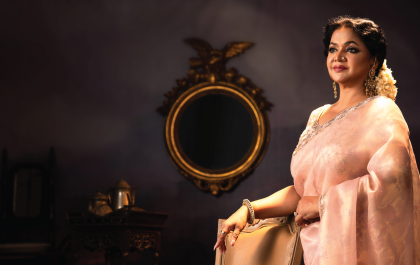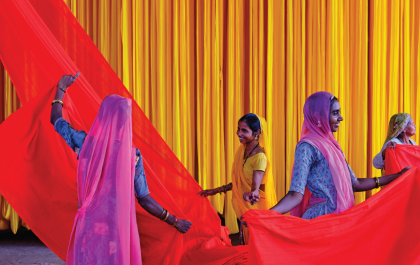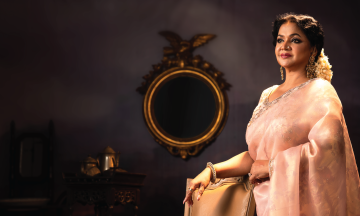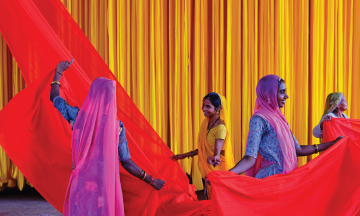By Eshadi Sharif
Dameer Khan talks about being a third culture kid in the music scene
Melodic, vulnerable, psychedelic – three words encapsulate the story of the rising artist Dameer Khan. The 22-year-old artist has created waves in the music industry with songs like “Amar Jaan” and “Bashbo Bhalo.” His music is often described as retro or psychedelic because of the ear-candy instrumentals, but the best way to describe his music is soulful. Most of Dameer’s lyrics are autobiographical, telling stories, small or life-altering, of his life.
Music was synonymous with breath from very early on in his life due to his family. The choice to pursue music was very simple. Back in the school days, in a school in Malaysia, he felt like it was hard to fit in and his interests were very different from the crowd, nudging him more towards music. The catalyst took place on his first visit back to Bangladesh when his song “Easier” was been released under Majestic Casual. He reconnected with Taha Islam, a filmmaker, who was interested in creating a spur-of-the-moment, low budget music video with Dameer. After that, the rest is history.
Dameer comments: “It sort of lit a fire because I thought there was something there. After that, I started sending out more songs.”
As one leaves their motherland to a foreign country, it instills a sense of a dual identity, and that is reflected in his dual-language music. Moving between countries, he found himself becoming an ambassador in many ways.
“I realized I had a responsibility to tell the Bangladeshi story in a way that is conducive, a proper representation, and makes them genuinely interested in the future of Bangladesh”
“Not that I wanted to, but it always ends up happening. I’ll play my English songs [in Canada] and people understand and vibe with them but when I play my Bangla songs, they’re a bit intrigued and come ask me questions about the music afterwards. Then I realized I had a responsibility to tell the Bangladeshi story in a way that is conducive, a proper representation, and makes them genuinely interested in the future of Bangladesh.”
It is hard – impossible – to take out either language out of an individual who has grown up immersed in many cultures. Due to his relatively Western style and English songs, it led to many people underestimating his talent, almost denying him space in the sphere of Bengali music. However, Dameer feels like this eventually became his strength as he mentions, “it makes it easy to make me an exportable Bangladeshi act.”
He stands his ground as he further elaborates: “I think in both English and Bangla, and therefore I must write in both English in Bangla. There are some things I can only write in English and there are some things I can only write in Bangla. I have to do both, I don’t have a choice.”
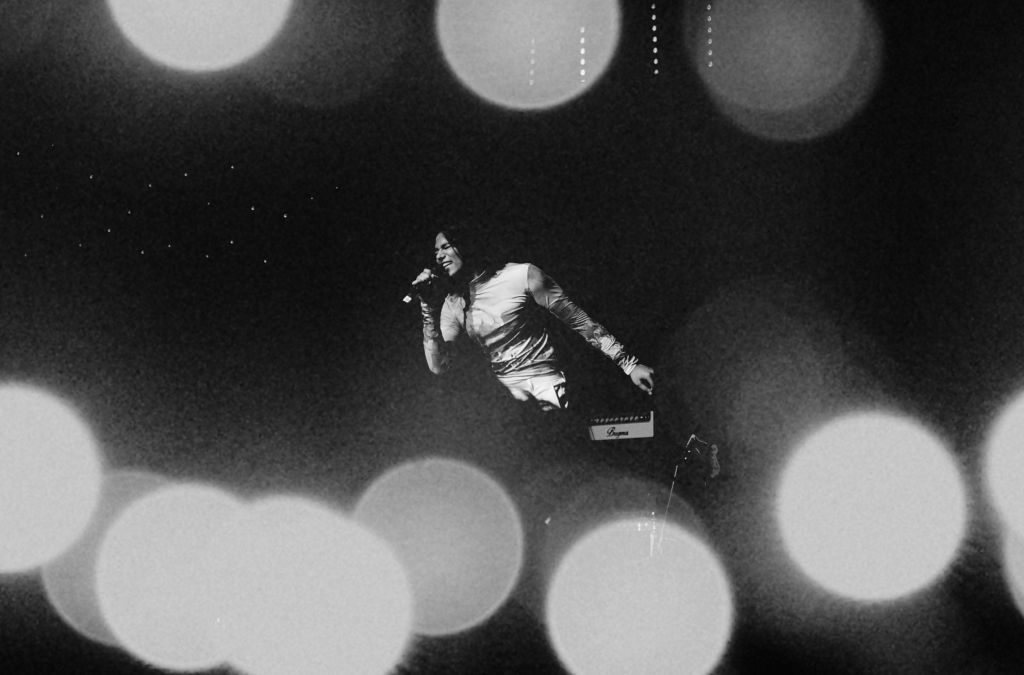
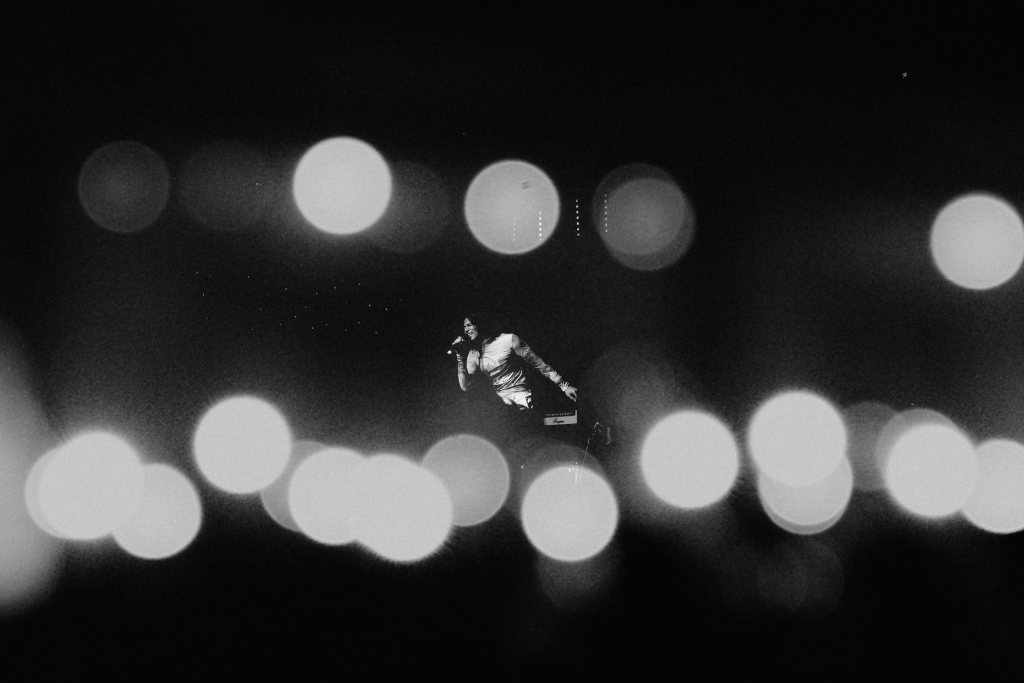
INSPIRATIONS FOR ALL AROUND
People living among these multiple cultures can often feel their impacts on their identity, making it multifaceted. In a similar way, Dameer’s music style shifts and changes with the language his music is in.
Dameer gives insight on his inspirations: “I grew up listening to a lot of Motown, Stevie Wonder, Smokey Robinson, but at the same time I grew up listening to a lot of my father’s music like Renaissance and Souls, Lucky Akhand, Bappa Mazumder.”
As he grew older, he felt the influences of these figures came out naturally as he created music himself. On his own, he had a deep love for hip hop and took influence from rappers. He was obsessed with artists such as Kendrick Lamar.
For English songs, he often draws inspiration from music with melodic vibes, such as Motown. For his Bangla music, he is inspired by his father’s music and the music his father listened to. Alongside that, he is also inspired by Qawwali, Ghazal, Baul, etc.
“My Bangla songs always end up a bit more like folk music, and a bit more melodic,” comments Dameer.
While creating “Bashbo Bhalo,” he listened to a lot of African music while he was temporarily living in Ghana, and it included artists such as Mdou Moctar and Les Fille de Illighadad.
He explains how insightful the music was: “They’re really amazing because their rhythm is very similar to Bangla music but their melodies are different.”
Since his music is autobiographical, the song carried a bit of his story as well. As Covid took over the world, many of his elderly relatives contracted it and heartbreakingly passed away.
Dameer noticed how the illness did not impact people just individually, but in pairs. Couples would be affected together, and in the unfortunate cases, one passes away leaving the other behind.

“The one that’s left might think death is around the corner for them after losing the love of their life. You lose someone you’ve been with for decades and death might be around the corner so what do you think, what is your philosophy towards life? The way I characterize it: ‘My life is meaningless without you so when death comes knocking on my door I will embrace it with open arms because my life will have meaning when I see you again. I will love when I will I see you in heaven, when I will hold you, when I will hear your voice.”
He continues: “At the last verse the lyrics turn from, ‘Bashbo bhalo tomay shei din’ to ‘Bashbo bhalo tomay ei din.’ It’s sort of a tragic happy ending.”
Dameer reminisced how the music came to him very naturally and quickly, which he feels was a sign of a good song.
The song itself has an intentionally bittersweet sound to it. Though being a bit upbeat, Dameer mentions: “Since it’s in minor progression, it has a bittersweet vibe to it.”
On the other hand, Dameer occasionally puts his songs and lyrics on two ends of a spectrum of emotions, such as “Believe,” “Sun,” and “Michelle.”
The story behind “Believe” is rooted from a traumatic relationship he was in, and how, despite meeting the perfect person later on, his trauma had held him down.
He elaborates: “Even though my body was in many ways saying this was right, my brain said you’re too traumatized for it. But the song was super upbeat, because it’s an irony thing. I wanted to juxtapose it on purpose. It’s like the world is laughing at you.”
Another example of how he uses the melody as a vehicle for the song’s impact is “Sun.” The song’s story came from generational trauma yet the music is a bit laid back.
Dameer explains this decision: “It’s a very bitter pill to swallow. I wanted to make it somewhat sweeter. It is peaceful and has a slow tempo, but it’s about generational trauma, the melody made the song easier to write. If I just made a sad song, I’d just get sad and by the end of it I’d just stop writing the song. But for some reason, writing the song in a happy, chill way made it easier for me to even deal with the subject matter.”
Dameer also experiments with his music in many of his English songs such as “It’ll Be Alright.” The song opens with the sound of the flute, which was what came to him first. The song had many versions, the verse leaned towards the sounds of psychedelic rock and had a different pre-chorus as well.
“I found a particular way to talk about the Bangladeshi experience in a new musical color”
The artist feels proud of what he has accomplished so far, and feels like he has much more to do.
Dameer beams while saying: “I found a particular way to talk about the Bangladeshi experience in a new musical color.”
However, he wants to change the music industry by protecting artists with better payment, entertainment lawyers, and more. He dreams of starting his own label and opening a record store as well.
He notes: “It falls under the umbrella of protecting Bangladeshi artists, and I want to live in a Bangladesh where it’s not a massive taboo to go into the arts.”





